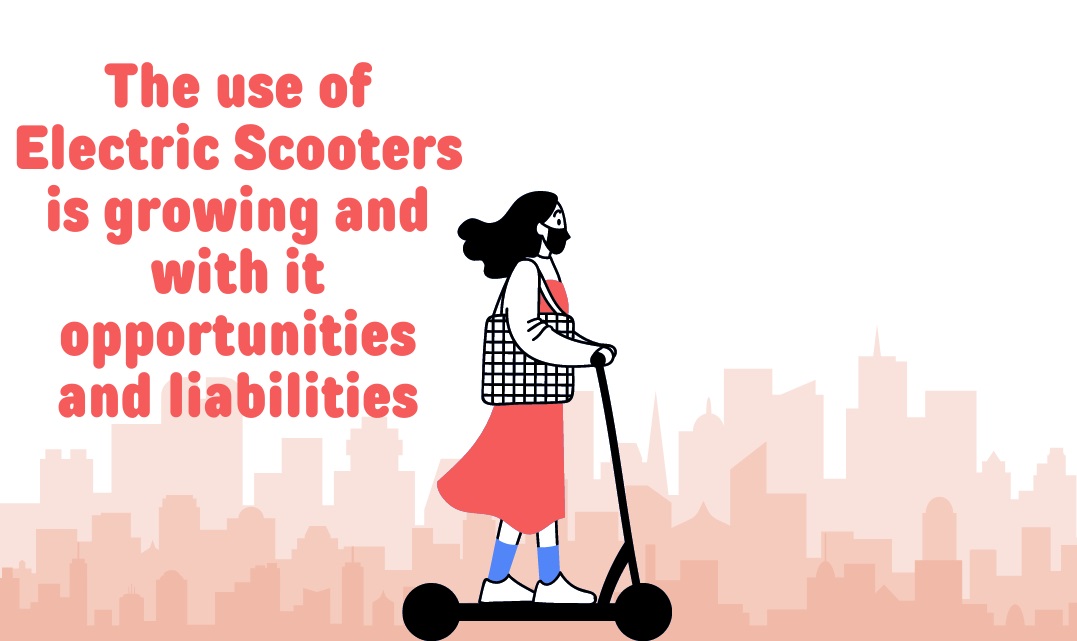One hot "new thing" is becoming a tricky source of loss, electric scooters. E-Scooters are a natural outgrowth of ride-sharing/ride-hailing and a concern to find more eco-friendly transportation. Several companies such as Spin, Lime, Scoot and Bird, have targeted locales with dense populations and traffic issues including Denver, San Francisco, Washington D.C., St. Louis, Santa Monica, Seattle and Indianapolis.
Some cities have fought against the disruption caused by E-scooters. E-Scooter Rental companies have usually taken a strategy used by more mature, sharing and gig economy players such as Airbnb. Rather than adhere to traditional business entry practices, such as undergoing licensing or permit protocols, E-Scooter companies often show up in an area overnight, without advance notice. The hope is that the service will be used immediately and, once becoming popular with citizens, the companies bank on receiving approval-after-the-fact.
The strategy is bold, but it has repeatedly worked, even, eventually defeating resistance by local authorities. While some locations have brought legal action or have banned their use, this sort of transportation is likely to expand for various reasons, including the following:
- Scooters are easy to operate and are efficient for use in business districts.
- The public appears to be very receptive to scooter use as statistics on their use showing rapid acceptance
- Renting scooters are facilitated by easy-to-use smart phone apps
- Scooters are very inexpensive to use
Another driver that will boost the E-Scooter market is that companies such as Lyft and Uber have begun their own efforts in making scooters available. In light of these developments, both businesses and the general public should become more aware of the various risks related to scooters.
E-scooters are quite representative of newer business models that are called disruptive. They depend upon the imagination of potential customers who, reliably, create unanticipated uses. E-scooters are made accessible via smart-phone applications that allow users to unlock, operate and terminate their use, including mobile payment. Uses are both recreational and commercial, creating both personal and commercial exposures.
Scooters are very attractive for persons in congested areas for various uses such as use for trips where taxis or public transportation would be too expensive or impractical. They may be used to add fun in experiencing downtown parks or cutting down travel time to get to dining spots, concert venues, theaters or sports events. They would also be a simple, natural way to supplement personal vehicle use or public transportation as a method of "last-leg" or "first-leg" transportation.
E-scooters are just as amicable to use by persons during their work day. They may be used to traveling to nearby meetings, going to lunch, make simple deliveries or run other business errands.
Personal and business users must become aware of the dangers that scooter use create for others. Pedestrian collisions typically only create embarrassment and apologies. E-Scooters are motorized vehicles that may reach speeds up to 15 mph. Certainly, along with the added mass of users, they may be capable of causing serious pedestrian collisions. Since many cities prohibit motorized vehicle use on sidewalks, they may also trigger roadway accidents.
Personal liability for injury or damage during personal E-scooter use may have to be sought under the liability portions of residential insurance policies. The liability connected to business use can be more complicated. Commercial coverage tends to be more specific regarding what may be covered. Businesses that don't have normal vehicle coverage may not have protection that it may extend to accidents caused by their employees. Even when coverage is, technically, available, loss circumstances may not be eligible. For instance, consider a company having company rules that forbid its workers to use scooters for business purposes. Another problem could be an accident due to an employee using a scooter on sidewalks when local law requires them to be used only on roadways.
E-scooters create significant liability concerns. Their use should be accompanied with the assurance that the users are aware of how they are protected in the event of a loss. Workers considering their use should also be aware of any employer rules that may apply.



Comments